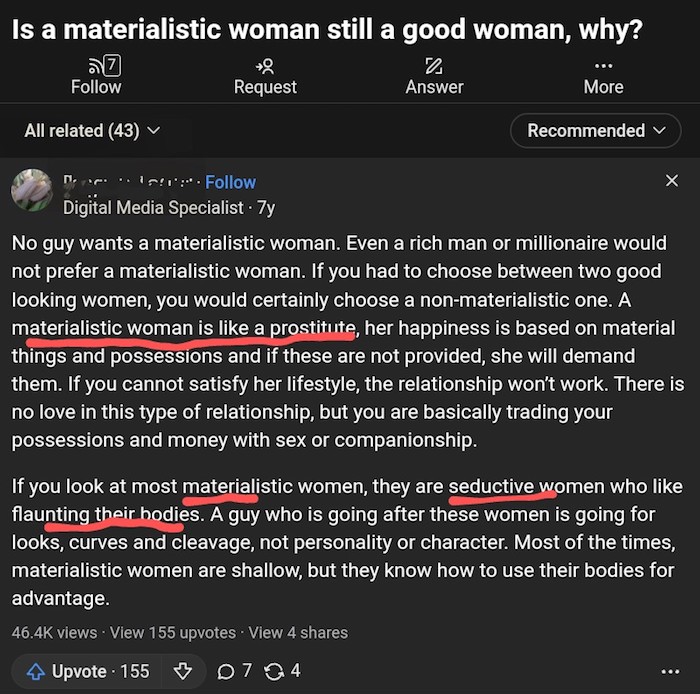
I never thought I would speak publicly about this. Like many women, I thought I was just “overthinking” things. But the more I spent time reading online discussions — especially on platforms like Quora — the more I realized something ugly, undeniable, and deeply disturbing was happening right under our noses.
There’s a specific kind of poison that exists in online comment sections. It’s not just disagreement or casual trolling. It’s a pattern — a focused, deliberate flood of negativity directed at women, especially when the topic touches anything remotely related to gender, feminism, harassment, or crime involving women.
What’s worse is that this hate doesn’t come from some organized fringe group. No, it’s often everyday people–people with profiles that look just like ours. Some of them even hold respectable positions.

I once came across a person who identified himself as an Indian Administrative Services (IAS) officer’s post that shared a news piece about a crime committed by a woman. He hadn’t written anything hateful or biased — in fact, his other posts were neutral and fair. But the comment section was an entirely different world. The same group of anonymous or low-effort profiles flooded the replies with abuse, sarcasm, and gender slurs — as if they were just waiting to unleash their bitterness on the first woman mentioned.
Sympathy Is Based on Evidence
Here’s what I’ve found striking: whenever a woman is a victim, especially in a news article with verified facts, there is sympathy and compassion. People respond with support and sadness. But the moment the post is simply a general opinion or story, even without solid proof, about a woman doing something wrong, it explodes. People don’t ask for proof or caution. They immediately jump into conclusions and start generalizing, saying things like “Indian women are like this,” “See how they behave,” and worse.
What’s even more telling is this: If someone shares a positive story about a woman, such as a wife doing something kind, people question it. They ask, “Is this even real?” or ignore it entirely. Yet, if that same storyteller posts something negative about a woman, everyone believes it without question.
The bias is not in what’s being said—it’s in what people want to hear.
A Pattern in Profiles
Once, on a post about fake marriage websites, someone commented that it’s easy to say “Do love or arranged marriage” when some people don’t even have parents. I responded with genuine suggestions—join NGOs, attend workshops, and connect with like-minded people through good causes. And he replied politely. But when I checked his profile, almost every comment of his was sarcastic, anti-feminist, and abusive.
What does that tell you? That tells me that the same man who says, “Women are the problem,” is also the one desperately looking for a woman to marry. The hypocrisy is loud and clear.
The Silence After Logic
Another thing I noticed is this: If I comment with a sharp, logical reply, no one responds. I’m not surprised if they agree, but that they say nothing back. They’re used to attacking emotional or vulnerable responses. But when you give them truth wrapped in logic, suddenly, they’re quiet. They don’t know how to fight without insults.
What This Really Means
So, what is the conclusion? The problem isn’t just in individuals—it’s in a mindset. And this mindset rewards outrage over truth, bias over balance.
Not every platform encourages this kind of behavior. But many times, the loudest voices are allowed to dominate the space unchecked. The people who see through it—the ones who still choose to speak with logic and respect—often get ignored. And it’s not because they’re wrong, but because their words make too much sense to argue with.
We, the people who see through it, need to stop being silent. Not every battle has to be a scream. Sometimes, the strongest resistance is a comment that leaves the haters speechless.
And that’s where my voice — and many others like mine — begins.
Byeol is a pen name used by a young Indian writer who explores gender, society, and human emotion through poetry and reflective essays. She believes silence is a form of power—until the moment truth demands to be spoken.
Feature image by Priscilla Du Preez on Unsplash

There are no comments
Add yours